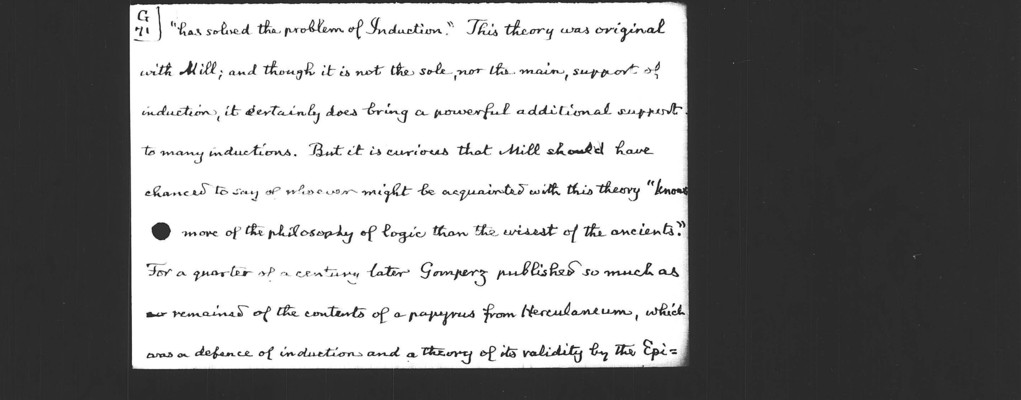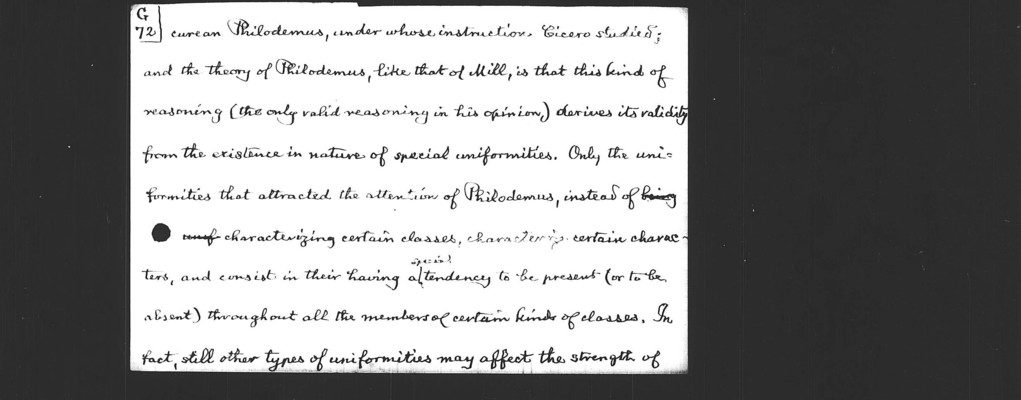Pages
71
G71
"has solved the problem of Induction." This theory was original with Mill; and though it is not the sole, nor the main, support of induction, it certainly does bring a powerful additional support to many inductions. But it is curious that Mill should have chanced to say of whoever might be acquainted with this theory "knows more of the philosophy of logic than the wisest of the ancients." For a quarter of a century later Gomperz published so much as so remained of the contents of a papyrus from Herculaneum, which was a defence of induction and a theory of its validity by the Epicurean
72
G72
Philodemus, under whose instruction Cicero studied; and the theory of Philodemus, like that of Mill, is that this kind of reasoning (the only valid reasoning in his opinion,) derives its validity from the existence in nature of special uniformities. Only the uniformities that attracted the attention of Philodemus, instead of being unif characterizing certain classes, characterize certain characters, and consist in their having a special tendency to be present (or to be absent) throughout all the members of certain kinds of classes. In fact, still other types of uniformities may affect the strength of
73
G73
Inductions.
A yet fourth theory of induction, that of Laplace, received, by implication, the assent of Mill; and since this theory is taught as correct in all the text-books of the Doctrine of Chances, it behooves me, in adapting another, to state, with the utmost brevity wherein Laplace's theory is false and harmful. I shall also give my explanation of Mill's assenting to it.
If, upon any occasion, we were to devise a method of forming a numerous sample of any class, say the Ss, which
74
G74
should be suitable for use in ascertaining determining to a pre given degree of approximation what proportion of future experiences of Ss would, in the long run, be found to have the character of being P, in case existing general conditions should undergo no change alteration, then in case there were any definite reason to expect that, among Ss coming to our attentive experience from a any particular sub-class, say among the Ss that belong to the subclass of Ts, a markedly different proportion would turn out to be P from the proportion among the Ss that
75
G75
should not be Ts, then that su method of forming the sample, since we have supposed it to be "suitable" for showing the proportion of Ps among all future experiences of Ss, would must needs insure that the proportion of Ss that are Ts should be nearly the same in the sample as it was destined to be among all the Ss of our future experience; though, as I need not repeat again, this would be so only under the supposition of unchanged the condition that general circumstances, and need not be more precisely true than would suffice to keep the errors of the concluded proportion of future subsequently experienced Ss that




